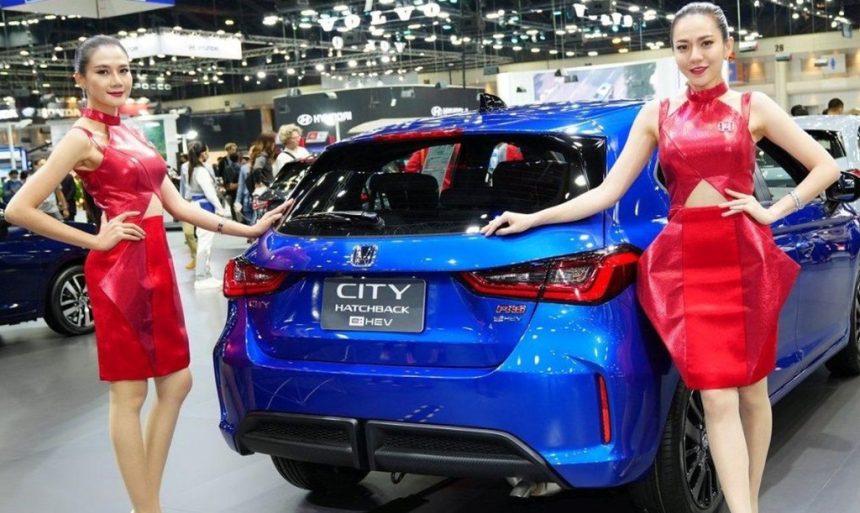Thailand’s Board of Investment (BOI) said it would lower excise taxes on hybrid vehicles (HEVs) from 2028 to 2032 as an investment reward for companies that make them.
Thailand has for decades been the regional auto making hub and an export base for some of the world’s top carmakers, including Toyota, and Honda.
Recent investments from Chinese electric car companies like BYD and Great Wall Motor have shook up the auto industry, and Thailand has been busy giving incentives to attract more companies.
“As we try to get cleaner energy, hybrid cars are just as important in Thailand as electric cars,” Narit Therdsteerasukdi, secretary-general of the BOI, told Thai PBS.
Thailand could be one of the main places in Asia that makes hybrid vehicles, and backing hybrid vehicle production will also help Thailand keep making auto parts. He said that the BOI thinks the tax changes will bring in 50 billion baht, which is about 1.39 billion US dollars in investments.
In five years, excise taxes will go down for companies that make hybrid cars and use local parts and spend at least 3 billion baht in the next four years. To get the tax breaks, hybrid cars will also need to have high-tech features that help the driver.
The BOI says that seven automakers are currently getting help from rewards. Four of these companies are from Japan and three are from China.

Car Buyers in Thailand Prefer Hybrid Vehicles
Meanwhile, a new study from Deloitte shows that Thai people are less interested in battery electric vehicles (BEVs) and more interested in hybrid electric vehicles (HEVs).
According to the 2024 Global Automotive Consumer Study, the number of Thai people who wanted to buy a BEV dropped from 31% in 2023 to 20% in 2024, while the number of Thai people who wanted to buy a HEV rose from 10% to 19%.
Still, cars with internal combustion engines (ICE), mostly diesel trucks, are still the most popular choice, even though the number of votes dropped from 36% to 32%.
Customers in Thailand like BEVs because they want to save money on petrol (73%), care about the environment (71%), and cut down on health and maintenance costs (49%).
People who choose HEVs have similar reasons. Concerns about limited driving range and charging problems are the main reasons people choose ICE cars (78%). They also want to avoid unexpected costs like battery replacements (67%), and they want to keep maintenance and customisation options (52%).
Even though general sales are going down, the biggest problem for Thai buyers of BEVs is still the lack of public charging stations (46% of respondents), though this is slightly less than the 48% of respondents in 2023.
Also, worries about hitting range have gone down from 44% to 39%. The poll shows that more Thai people are okay with longer charging times: 38% are okay with 21 to 40 minutes of charging time, up from 25% in 2023.
Across Southeast Asia, people still prefer to charge their phones at home. However, in Thailand, more people are using petrol stations as charging points (26% in 2023 to 34%) or choosing to charge anywhere (5% to 29%).
The number of people using BEV charging stations has gone down from 51% to 21%. At the same time, the number of people wanting a longer driving range per charge has gone up slightly, to 44%.
Thai people are thinking about price (18% in 2023 vs. 47%) and ability (26% vs. 51%) more and more when they decide to buy a car. Also, features of the car have become a little more important, going from 49% to 53%.
Product quality is still a big deal for Thais when they buy cars, but it has gone down from 64% to 53%. There is also less focus on how well known and regarded the company is.
Also, 64% of Thai people who answered the poll are willing to try new car brands. This is because 52% of people can get new tools, 49% want something new, and 36% can afford it.
There are ways to look at a car’s features and financing choices online, but 92% of Thai buyers still like to see and drive the car before they buy it. For 91% of those who answered, test driving and talking to a salesperson were very important.
Seventy-four percent of Thai buyers prefer installment plans to pay for their cars. Twenty-one percent would rather pay cash, and five percent choose balloon payment plans.
Notably, people between the ages of 18 and 34 were more interested in vehicle rental services (47%), compared to buying a car outright.
Also, it was clear that for 82% of respondents in Thailand, the cost of maintenance and the price of parts are very important when picking a car model. Also, 63% are ready to buy maintenance packages that cover everything, and 84% of those thinking about buying a BEV are interested in battery accident insurance.














